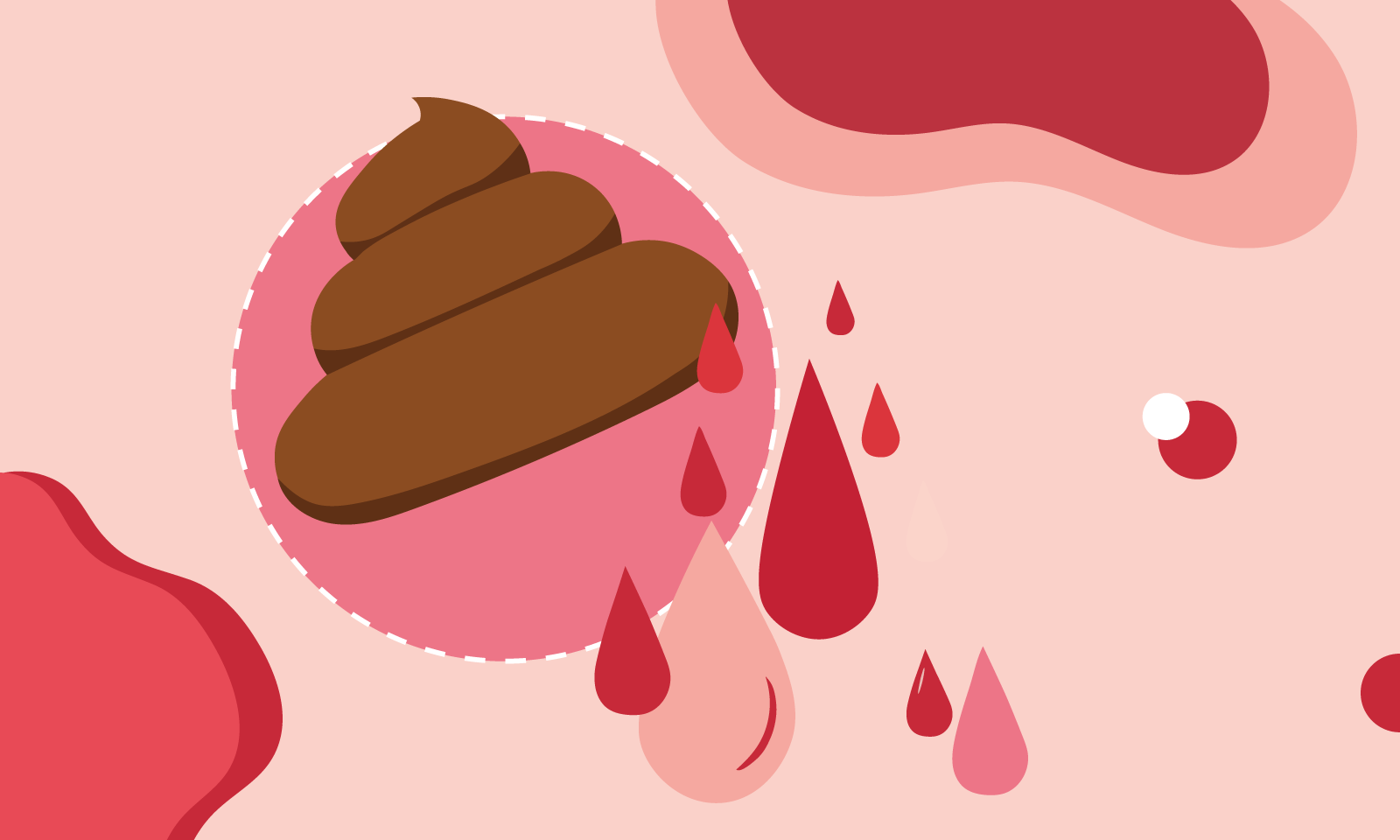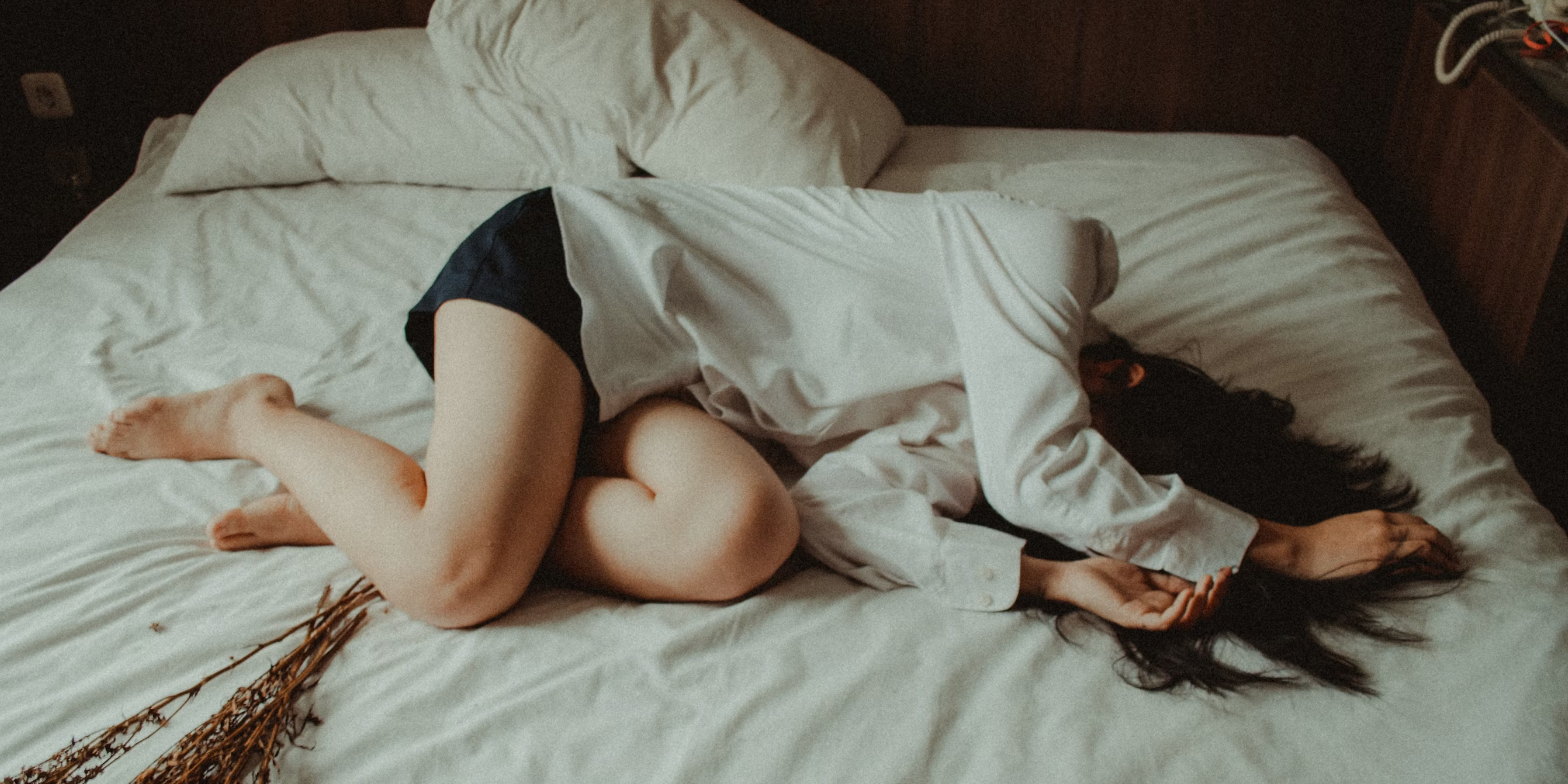Period Poop: All the Questions You’ve Ever Asked, Answered

Society shuns away from the difficult topics but we have to know…what is period poop and why is there so much of it?
“What is period poop?”; “Why do I poop so much on my period?”; “Why does it hurt to go?”. And these are just some of the things you could think to ask!
Here, we’ve set out a friendly, helpful guide of answers to everything you’ve ever wanted or needed to know about period poop. We’ve also added a few tips on what you can do to help yourself.
What is period poop?
Period poop is pretty much exactly how it sounds: a poo you take on your period.
However, you might have noticed it’s probably be a bit different to the ones you have when you’re not on your more delicate days, when talking about the consistency, frequency, and (unfortunately) the smell as well.
But before we get into all of that, it’s important to remind you that period poos are perfectly normal and are actually really common. There’s nothing to feel embarrassed about when you need to know what’s going on in your body, no matter where in the body the “goings on” happen to be.
Why do periods have an affect on how we poo?
Throughout a menstrual cycle, a person’s hormones are on a kind of rollercoaster ride. Right before your period starts, your body will stock up high on the hormone progesterone just in case you get pregnant. Then, when you’re on your period, this will drop away again and your body will increase levels of compounds called prostaglandins. These make your womb muscles contract to help break down the uterine lining.
What does this have to do with period poop, exactly? The release of prostaglandin compounds are supposed to target your uterus at this time but if too many are produced they can enter your bloodstream.
If the prostaglandins travel to other organs, including your bowels and the rest of your digestive system, they’ll do what they do best and encourage your organs to basically clear themselves out. This results in you needing the bathroom more often. Low levels of progesterone can also make you need to go more.
Hormones, moods, and period poop
Our menstrual cycle hormones can leave us feeling all over the place, especially in terms of anxiety. This increase in stress can also be one of the contributing factors to needing the bathroom more while you’re on your period.
Why do I have green/black poop on my period?
You might need to go more often but why on earth is your poop now suddenly green? The simple answer is your hormones. The same hormones that are causing you to go more often are also changing the texture and colour of your poop. But it should quickly return to normal - even if it seems like you're waiting forever for your period to come to an end.
Why do I feel at my worst mentally while on my period?
PMS or Premenstrual Syndrome causes a variety of side effects, including low mood. It can cause:
- Mood Swings
- Depression
- Irritability
- Tender Breasts
- Food Cravings
- Fatigue
It is recommended to:
- Exercise regularly
- You may find that eating frequent smaller meals suits you better than your normal eating habits
- Get plenty of rest
- Do yoga or meditation
- Keep track of your symptoms for at least 2 to 3 menstrual cycles if you need to see your GP.
If your mood is not getting better, it is best to reach out to your GP for advice and medication to help make you feel better for when Mother Nature next visits.
Why do I poop so much on my period?
Having all those prostaglandins or that lack of progesterone in your body doesn’t just make you want to poop more at a comfortable, natural rate. One or both can also give you diarrhoea.
If you’re a coffee-lover, this can also make you poop more than you normally would, especially during a period. This is because coffee has a laxative effect ‒ nothing to do with any of your hormones this time but you might want to ease up on the coffee if it's getting in the way of your day-to-day.
Conversely, why do I get constipated during my period?
We all know that it seems like a huge irony, having two symptoms of PMS and being on a period that is the complete opposite of each other. But, it is possible to be on your period and not poop more, but actually end up pooping less.
This is, again, to do with progesterone and prostaglandins, but it happens when you’ve got the opposite problem to those with diarrhoea on their periods. If you have too much progesterone in your body and not enough prostaglandins, you’re likely to end up constipated because your digestion will slow down.
If this is causing you significant discomfort, consult with your GP who might be able to prescribe laxatives.
Why does it hurt to poo during my period?
If it hurts to go while you’re on your period, there could be a few things that are happening in your body:
- Constipation, which can make period poos harder and more difficult to pass
- Diarrhoea, which might also come with painful stomach cramps
- Menstrual cramps, which might feel worse if you’re straining
- A gynaecological condition, like endometriosis or ovarian cysts
- Haemorrhoids, which might develop because of constipation, diarrhoea, or even just from spending too much time on the toilet
According to BMC Women’s Health, people also report greater sensitivity to pain and feelings of discomfort while they’re in the premenstrual phase, as well as when they’re on their actual periods. The sensitivity might be why it hurts more to go when you’re on or coming up to your period.
How can I tell the difference between needing to poo and period cramps?
It’s totally normal to confuse the pain and discomfort of period cramps with needing to go. Again, we have prostaglandins to thank for that! The easiest way to tell is to notice if there’s any feeling of pressure anywhere around your pelvis, lower back, or even occasionally your bottom.
If you feel any pressure in any of these places, you’ve got period cramps and probably don’t need to go. Though you may want to try and go anyway, just to be sure!
Why does period poop smell so bad?
Another side effect of PMS that we can get (and sometimes love, if we feel like indulging) is food cravings. Progesterone can make you want foods you might not eat otherwise, or might give you a stronger compulsion to eat. The change in your diet affects the smell of your poo, and can also lead to those “period farts” we all want to avoid (more on that later).
Of course, any bowel movement you have during a period is likely to involve menstrual blood as well, which has its own smell. Other people shouldn’t be able to smell this, though, and it’s a sign that your vagina is healthy if it has its own distinctive odour.
Period Farts
You might have noticed you’re more gassy during your period, but it’s nothing to be ashamed of.
Again we have hormones to thank but this time, it’s our estrogen. Estrogen rises in the days leading up to your period which can cause gas, constipation and trapped gas in your intestines.
Bloating on my period
Sometimes our tighter pairs of jeans are just a no-go until your period goes away. But why? They fit just last week!
An increase in oestrogen causes your body to retain more water and salt, which swells the cells in our body that look like bloating. We find people get self-conscious about this, worrying that they look like they could be pregnant instead or gained weight but it’s just our body’s way of protecting us while it puts us through hell for about a week.
Why does going make my tampon come out?
The way your pelvic muscles are arranged means that going to the toilet during a period can sometimes make your tampon come out. Even if you do pelvic floor exercises, your muscles all down there are connected - why do you think people often poop when giving birth? - so you might prefer to change your tampon when you do go to the bathroom. Straining especially hard when you need to poo can also be the reason this is happening for you.
Will I need to change my tampon every time?
If you’re able to go without your tampon coming out, there shouldn’t be any reason to change it unless you get poo on the string. This is because it’ll have harmful bacteria in it that could cause an infection, so it’s best to keep it away from your body.
If you’d prefer to change your tampon every time you go to the bathroom, that’s up to you. Otherwise, you can just hold the string out of the way while you go.
What about wiping?
Wiping while you’re on your period isn’t going to be nice. If you’re not using a tampon it can even get quite messy! You’ll still need to do it, of course, but you might want to find biodegradable wipes that aren’t perfumed or covered in chemicals so that your skin doesn’t dry out or become irritated. Finishing off with some wet toilet paper can also provide relief, if you don’t have any wipes.
We’d suggest not getting “flushable” wipes, as these can be bad for your drains.
Is there anything else you can do to make your period poos better?
You might not be able to get around it entirely because everyone poos, but if you want to make it less painful or don’t want to poop so much, there might be a few things you can do:
- Take an over-the-counter medication, like ibuprofen. This helps to block prostaglandin and reduce diarrhoea while easing period cramps
- Eat a healthy diet of natural fibre, including fruits, vegetables, and whole grains. This helps to keep your digestive system regular, and some foods might help with period cramps too
- Get out there and get some light exercise! This can be great for PMS-related bloating, helps to keep your bowels moving, and is also good for stress
- Use stool softeners. These help poop to pass through the body more easily, keeping you more comfortable until your hormones settle again
- Switch your hygiene products. If you’re worried about your tampon coming out every time you go, try using a different product that won’t, such as period underwear
Should I be worried if none of the remedies help?
If you’ve tried the remedies we’ve suggested and you’ve found that a trip to the bathroom still hurts, or is still causing you a lot of discomforts, then there might be another gastrointestinal or gynaecological condition behind it. There are several common conditions that are affected by the menstrual cycle, including:
- Endometriosis
- Fibroids
- Irritable bowel syndrome (IBS)
- Ovarian cysts
- Polycystic ovary syndrome (PCOS)
You’ll need to get medical advice or talk to your doctor or health provider if the problem doesn’t get better, gets worse, or if you experience:
- Heavy periods
- Mucus in your poo
- Rectal bleeding (blood when you wipe)
- Severe cramps or abdominal pain
A doctor should be able to suggest a range of different treatments, including hormonal birth control (like the oral contraceptive pill). This can help to regulate your hormone levels, and might help with the more painful and uncomfortable symptoms of PMS.
Helping your hygiene and staying stylish at the same time
We know all about uncomfortable moments involved with periods, including everything around period poop. If you need a new hygiene product that won’t move when you’re on the toilet, or even if you’d just like something super-soft and ultra-absorbent to wear on heavier days, why not check out our collections?
Our leak-proof period pants are designed to hold between half and five whole tampons’ worth of flow, all while keeping you dry and fresh with an in-built moisture wicking layer. When you decide on a tummy-hugging, high waisted pair, you’ll even get a little extra protection and security against bloating!
Find your perfect fit online and buy a set or two today to see how they feel. We’ve even got a 60-day money-back guarantee if you don’t feel like your monthly cycle has changed forever after trying them out!
- Tags: Periods



